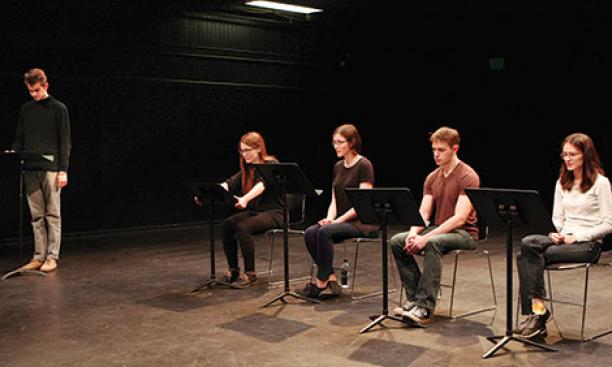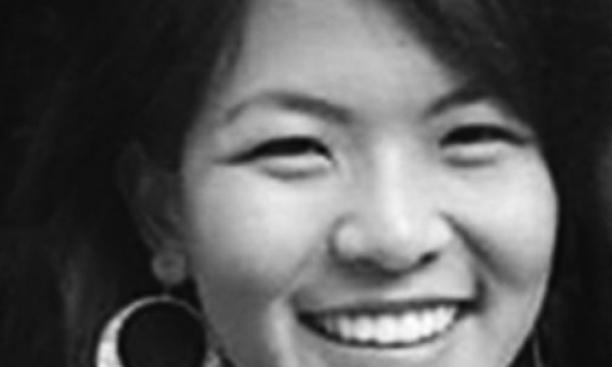

In celebrating the “best old place of all,” Reunions and Commencement often gloss over the challenges of Princeton. But Joseph Labatt ’15’s senior-thesis play brings attention to the struggles of students dealing with mental-health issues.
I’m Fine, I’m Better, Don’t Worry About Me is an investigative theater piece that draws upon Labatt’s own experiences coping with physical and mental-health issues, interviews with other students, and sources such as therapy techniques and posts on Yik Yak, an anonymous social-media app.
The play was performed at the Matthews Acting Studio in early May, but Labatt, an English major from Texas, had begun brainstorming the project in the spring of 2014. While taking a year off because of depression due to a sleep disorder, Labatt visited campus and felt pressured to maintain the façade that he was doing fine. Hiding his problems caused more anxiety, so Labatt began telling people the truth.

“Sharing my story and situation with others helped tremendously, relieving a huge part of the burden I was carrying and giving me the support of informed friends,” Labatt wrote in his introduction to the play. “That’s why I decided to focus my thesis project on giving other students an opportunity to share as well.”
Conducting interviews with students helped Labatt learn about an array of mental-health issues. Originally, he had assumed that having struggled with mental health himself, he was well versed in the issues. But his first interview included an account of high school sexual assault, which left Labatt unsure of how to respond. Ultimately, he realized that letting people tell their own story was the most important thing.
“Being open with oneself in sharing what one is going through as well as being open with listening to other people — working on the play led me to be more proactive about doing that,” Labatt said.
During a talkback following one of the performances, Calvin Chin, the University’s director of counseling and psychological services, applauded the cast and said he agreed with the play’s message that radical changes — such as moving final exams to before winter break — are called for to help improve students’ mental health.
The show’s program included a resource list and a note from Labatt. “My goal is not to stress or depress you,” he wrote. “But if the content of the play moves you to want to talk to someone, know that you can walk straight from this show to the McCosh Health Center” and speak with a counselor.
